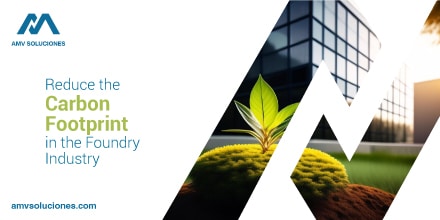The carbon footprint, which measures the amount of greenhouse gases (GHG) produced by our activities, is a crucial indicator in the fight against climate change. In an effort to address this issue, the foundry industry is taking significant steps to reduce its environmental impact and contribute to a cleaner, more sustainable economy.
The foundry industry is at a crucial point of transformation, where sustainability has become an undeniable priority. In this context, the benefits offered by Alea, a leading foundry process management software, align perfectly with the fundamental actions the industry must take to reduce its environmental impact and maximise its efficiency.
Reducing Energy Consumption
One of the pillars to combat the carbon footprint in the foundry is the reduction of energy consumption. Alea addresses this challenge head-on by enabling furnace temperature control, lead-time reduction and minimisation of casting adjustments. These functions not only improve operational efficiency, but also contribute directly to the reduction of energy consumption, paving the way for a more sustainable foundry.
Maximising the Use of Recycled Materials
The transition to a more sustainable foundry involves maximising the use of recycled materials. In this respect, Alea excels by offering efficient and accurate control of scrap and returns. The ability to manage these second-melt materials in an optimal way not only ensures that the desired alloy is obtained, but also significantly reduces dependence on virgin raw material. Alea thus becomes a strategic partner in driving sustainability through intelligent resource management.
Transition to Sustainable Fuels
Replacing fossil fuels with more sustainable options is a key step towards reducing emissions in the foundry. Alea contributes to this strategy by automating processes, eliminating calculation errors and providing real-time monitoring of melting parameters. These features not only improve accuracy and efficiency, but also pave the way for the adoption of more sustainable technologies, such as electric furnaces or hydrogen fuels.
In conclusion, Alea not only delivers the benefits of raw material savings, reduction of casting adjustments, process automation, minimisation of rejects and elimination of miscalculations, but it is also an essential tool for the foundry to move towards a more sustainable future and for the positive transformation of the foundry industry.



